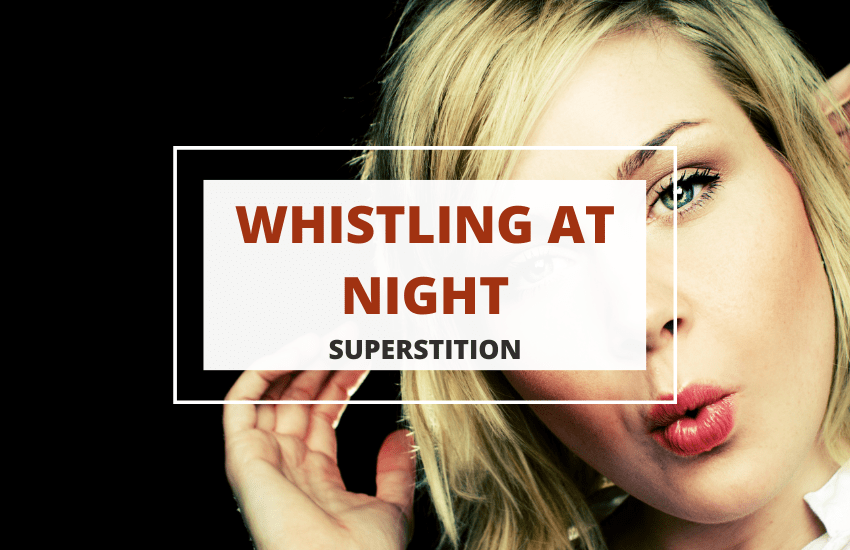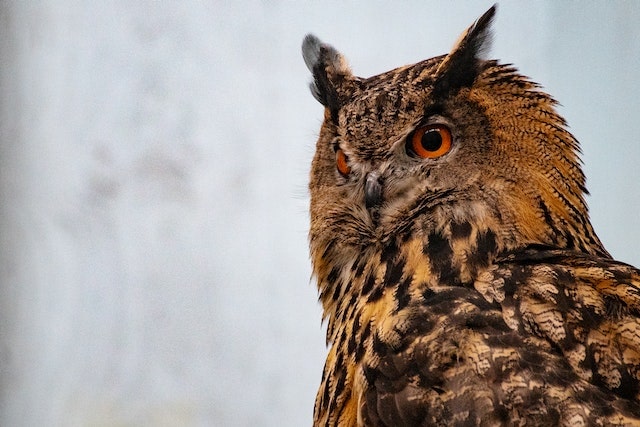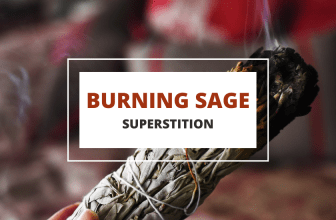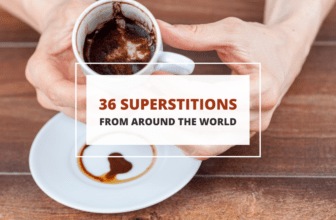
Table of Contents
Taboos about whistling are spread all over different cultures and beliefs around the world. But those superstitions seem to only lead towards one conclusion – whistling at night brings bad luck. It’s basically considered a bad omen and is greatly discouraged by those who still follow the footsteps of their ancestors.
Whistling at Night Superstitions in Different Cultures
Here are the most popular superstitions associated with whistling at night around the globe:
- In some parts of rural Greece, it is believed that whistling is the recognized language of evil spirits, so when someone whistles at night, those spirits haunt and punish the one doing the whistling. Even worse, one can even lose their voice or ability to speak as a consequence!
- There’s a superstitious belief in British culture called the “seven whistlers” or seven mystical birds or deities that can foretell death or a great catastrophe. The fishermen in England considered whistling at night a sin because of the risk of summoning a terrible storm and bringing death and destruction.

- One Inuit legend in Canada mentions that one who whistles at the Northern Lights risks calling spirits down from the aurora. According to a First Nations tradition, whistling also attracts the “Stick Indians,” the frightening wild men of Interior and Coast Salish tradition.
- In Mexican culture, whistling at night is believed to invite “Lechuza,” a witch that transforms into an owl that will fly over and carry the whistler away.
- In Korea, it is believed that whistling at night summons ghosts, demons, and even other creatures not known from this world. Snakes are also thought to be called by whistling. However, while snakes were prevalent in the past, today this isn’t the case. So now, this superstition is probably just told by adults to children to prevent them from making noises at night to disturb neighbors.

- Japanese people believe that whistling at night disturbs the quiet night, which makes it a bad omen. It is also thought to attract thieves and demons called “Tengu” who abduct the whistler. This superstition is said to attract a literal snake or even a person with undesirable character.
- In Han Chinese, night whistling is believed to invite ghosts into the home. Some yoga practitioners also believe that they can summon wild animals, supernatural beings, and weather phenomena just by whistling.
- Tribes in Native America believe in some sort of shapeshifter called “Skinwalker” by the Navajo tribe and “Stekeni” by another group. If something whistles back at you, it is usually believed to be any of the two creatures watching you. When this happens, better run away from them immediately!
- Whistling at night is thought to invoke “Hukai’po” or the ghosts of ancient Hawaiian warriors called Night Marchers. Another Native Hawaiian legend says that nocturnal whistling summons the “Menehune” or the forest-dwelling dwarves.
- Several tribes and indigenous groups around the world believe that whistling at night summons evil spirits, like in central Thailand and some parts of the Pacific Islands. The Noongar people of Southwestern Australia believe that night whistling attracts the attention of “Warra Wirrin,” which are bad spirits. The Maori of New Zealand also has the superstition that the “Kehua,” the ghosts and spirits, will whistle back.
- In Arab culture, whistling at night runs the risk of luring “Jinns,” the supernatural creatures of Islamic mythology, or even Sheytan or Satan. Based on an ancient belief in Turkey, this superstition gathers the power of Satan and summons the Devil.
- African cultures, including Nigeria, suggested that whistling called wildfire to ancestors’ yards at night. Similarly, Estonia and Latvia also believed that whistling at night brings bad luck, causing the houses to burst in flames.
Other Superstitions About Whistling
Do you know that not all superstitions about whistling are associated with evil spirits?
Some countries like Russia and other Slavic cultures believe that whistling indoors could bring poverty. There’s even a Russian proverb that says, “whistling money away.” So, if you’re a superstitious person, be careful not to blow away your money and lose your fortune!
Theater actors and staff consider whistling backstage as a jinx that could cause bad things to happen not only for them but to the entire production. On the other hand, sailors ban whistling on board as it could draw bad luck to the crew and the ship.
An early 17th-century antidote says that walking around the house three times would prevent bad fortune that comes with night whistling.
In Brief
While whistling at night is a bad luck superstition, whistling first thing in the morning is believed to be good luck along your way. So, the next time you whistle for a happy tune, make sure to check the time when you’re doing it.








